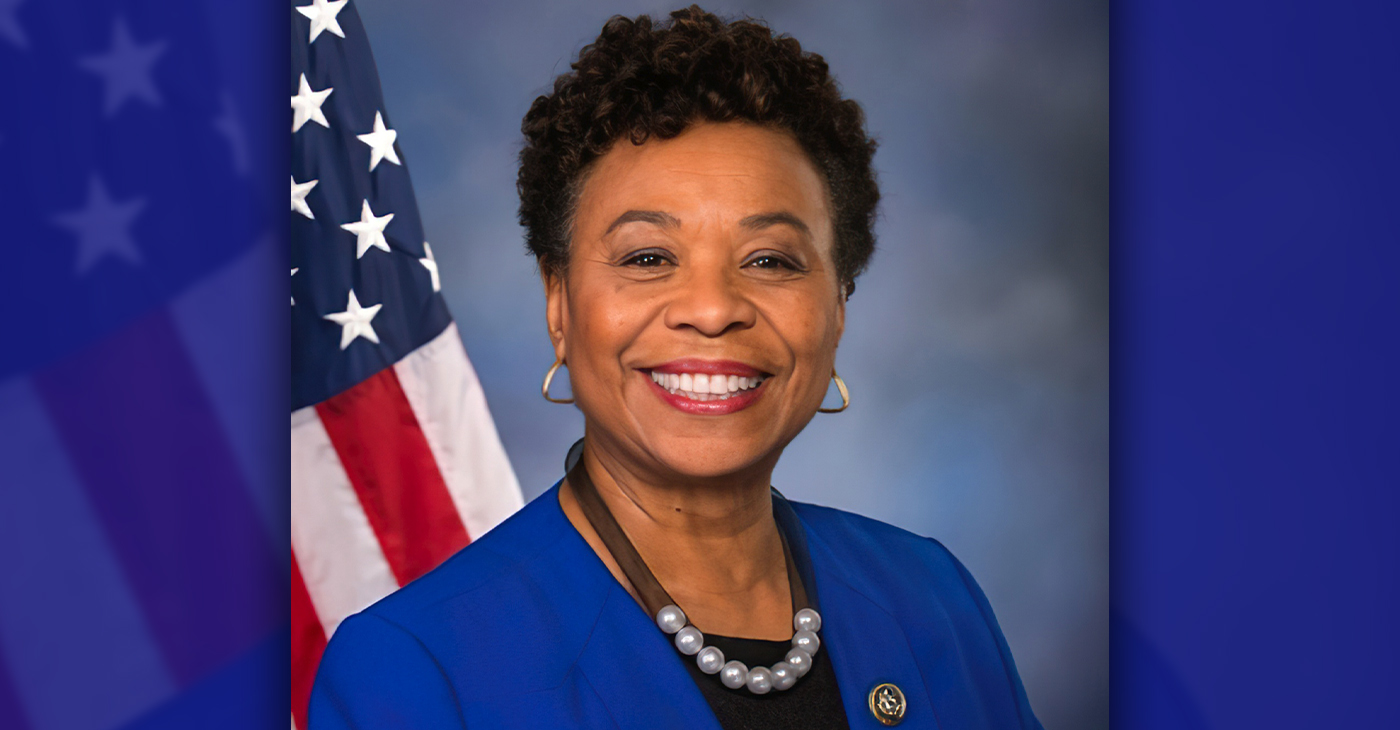City Government
Barbara Lee, 2 Other Lawmakers Maneuver to Force Vote on Legislation to Restore Roe
U.S. Reps. Barbara Lee (D-CA), Diana DeGette (D-CO), and Judy Chu (D-CA) filed a “discharge petition” on Wednesday that could force Speaker Kevin McCarthy to hold a vote on the Women’s Health Protection Act – a landmark piece of legislation that would restore the protections that were in place under Roe v. Wade.

A discharge petition filed Wednesday could force the GOP-led House to hold a vote on a landmark abortion-rights bill
U.S. Reps. Barbara Lee (D-CA), Diana DeGette (D-CO), and Judy Chu (D-CA) filed a “discharge petition” on Wednesday that could force Speaker Kevin McCarthy to hold a vote on the Women’s Health Protection Act – a landmark piece of legislation that would restore the protections that were in place under Roe v. Wade.
As the nation approaches the one-year anniversary of the U.S. Supreme Court’s decision to overturn Roe v. Wade, and with the support of Democratic leadership in the House, this trio of House lawmakers are seeking to employ a seldom-used legislative tactic that could force the GOP-led House to hold a vote on a key piece of legislation that would restore every American’s right to abortion care.
“In every election or poll since the Dobbs decision, the American people have made their support for reproductive rights clear,” said Lee, the co-chair of the Congressional Pro-Choice Caucus.
“My colleagues in Congress now have a choice: either trust your constituents to make the best decisions for themselves about their bodies, health, and lives, or go against the will of the people and continue to restrict a fundamental personal freedom.
“The decision to have an abortion should be between a person and their doctor—NOT politicians. The Pro-Choice Caucus is sending a message to the American people that we will not stop fighting to defend your right to make your own decisions over your bodies.”
“If my colleagues on the other side of the aisle aren’t willing to stand up for the people they represent, then we must,” DeGette, who serves as co-chair of the Congressional Pro-Choice Caucus, said on the House floor Wednesday to announce the trio’s decision to file the petition.
“We may not have the majority in this chamber, but there is no doubt that we have the majority of Americans on our side in this fight. Now is the time to end the devastation that too many Americans have already experienced. Now is the time to let the American public know exactly where every member of this chamber stands.”
“With House Republicans beholden to their extreme MAGA members, they refuse to restore and strengthen Americans’ reproductive rights,” said Chu, the prime sponsor of the Women’s Health Protection Act. “I am beyond proud to work with House Democratic leadership and the Pro-Choice Caucus to offer the Women’s Health Protection Act in a discharge petition to force accountability for their inaction.
“House Members who do not add their signature are telling Americans that they shouldn’t have the freedom to make their own healthcare decisions,” Chu concluded.
Under House rules, if a discharge petition to force a vote on a particular piece of legislation is signed by 218 members of the House, it must immediately be brought before the full House for a vote, regardless of any objections or attempts by GOP leadership to block the legislation from being considered.
In this case, if the petition Lee, DeGette, and Chu filed Wednesday is signed by 218 members of the House, Speaker McCarthy and his allies would be required to immediately hold a vote on the Women’s Health Protection Act, which the House approved twice last year.
The move comes as more than one dozen states across the country have enacted laws banning or extremely limiting women’s right to access abortion services in the wake of the Supreme Court’s decision last June.
If approved, the Women’s Health Protection Act would restore the protections that were in place under Roe and nullify any state or local government’s restrictions that have been put in place to limit, or outright prohibit, patients’ access to abortion care.
Now that it’s been filed, the discharge petition introduced by Lee, DeGette, and Chu will remain open for members to sign.
At any time, if the discharge petition filed Wednesday garners 218 signatures, the Women’s Health Protection Act will be called up for a vote – despite the GOP’s intent on preventing it from being considered.
From U.S. Rep. Barbara Lee’s media relations office.
Activism
Oakland Post: Week of April 24 – 30, 2024
The printed Weekly Edition of the Oakland Post: Week of April 24 – 30, 2024

To enlarge your view of this issue, use the slider, magnifying glass icon or full page icon in the lower right corner of the browser window. ![]()
Alameda County
DA Pamela Price Stands by Mom Who Lost Son to Gun Violence in Oakland
Last week, The Post published a photo showing Alameda County District Attorney Pamela Price with Carol Jones, whose son, Patrick DeMarco Scott, was gunned down by an unknown assailant in 2018.

Publisher’s note: Last week, The Post published a photo showing Alameda County District Attorney Pamela Price with Carol Jones, whose son, Patrick DeMarco Scott, was gunned down by an unknown assailant in 2018. The photo was too small for readers to see where the women were and what they were doing. Here we show Price and Jones as they complete a walk in memory of Scott. For more information and to contribute, please contact Carol Jones at 510-978-5517 at morefoundation.help@gmail.com. Courtesy photo.
City Government
Vallejo Welcomes Interim City Manager Beverli Marshall
At Tuesday night’s Council meeting, the Vallejo City Council appointed Beverli Marshall as the interim city manager. Her tenure in the City Manager’s Office began today, Wednesday, April 10. Mayor Robert McConnell praised Marshall’s extensive background, noting her “wide breadth of experience in many areas that will assist the City and its citizens in understanding the complexity of the many issues that must be solved” in Vallejo.

Special to The Post
At Tuesday night’s Council meeting, the Vallejo City Council appointed Beverli Marshall as the interim city manager. Her tenure in the City Manager’s Office began today, Wednesday, April 10.
Mayor Robert McConnell praised Marshall’s extensive background, noting her “wide breadth of experience in many areas that will assist the City and its citizens in understanding the complexity of the many issues that must be solved” in Vallejo.
Current City Manager Michael Malone, whose official departure is slated for April 18, expressed his well wishes. “I wish the City of Vallejo and Interim City Manager Marshall all the best in moving forward on the progress we’ve made to improve service to residents.” Malone expressed his hope that the staff and Council will work closely with ICM Marshall to “ensure success and prosperity for the City.”
According to the Vallejo Sun, Malone stepped into the role of interim city manager in 2021 and became permanent in 2022. Previously, Malone served as the city’s water director and decided to retire from city service e at the end of his contract which is April 18.
“I hope the excellent work of City staff will continue for years to come in Vallejo,” he said. “However, recent developments have led me to this decision to announce my retirement.”
When Malone was appointed, Vallejo was awash in scandals involving the housing division and the police department. A third of the city’s jobs went unfilled during most of his tenure, making for a rocky road for getting things done, the Vallejo Sun reported.
At last night’s council meeting, McConnell explained the selection process, highlighting the council’s confidence in achieving positive outcomes through a collaborative effort, and said this afternoon, “The Council is confident that by working closely together, positive results will be obtained.”
While the search for a permanent city manager is ongoing, an announcement is expected in the coming months.
On behalf of the City Council, Mayor McConnell extended gratitude to the staff, citizen groups, and recruitment firm.
“The Council wishes to thank the staff, the citizens’ group, and the recruitment firm for their diligent work and careful consideration for the selection of what is possibly the most important decision a Council can make on behalf of the betterment of our City,” McConnell said.
The Vallejo Sun contributed to this report.
-

 Activism4 weeks ago
Activism4 weeks agoOakland Post: Week of March 27 – April 2, 2024
-

 #NNPA BlackPress4 weeks ago
#NNPA BlackPress4 weeks agoBeloved Actor and Activist Louis Cameron Gossett Jr. Dies at 87
-

 Community1 week ago
Community1 week agoFinancial Assistance Bill for Descendants of Enslaved Persons to Help Them Purchase, Own, or Maintain a Home
-

 Activism3 weeks ago
Activism3 weeks agoOakland Post: Week of April 3 – 6, 2024
-

 Business1 week ago
Business1 week agoV.P. Kamala Harris: Americans With Criminal Records Will Soon Be Eligible for SBA Loans
-

 Activism2 weeks ago
Activism2 weeks agoOakland Post: Week of April 10 – 16, 2024
-

 Community1 week ago
Community1 week agoAG Bonta Says Oakland School Leaders Should Comply with State Laws to Avoid ‘Disparate Harm’ When Closing or Merging Schools
-

 Community6 days ago
Community6 days agoOakland WNBA Player to be Inducted Into Hall of Fame






















































